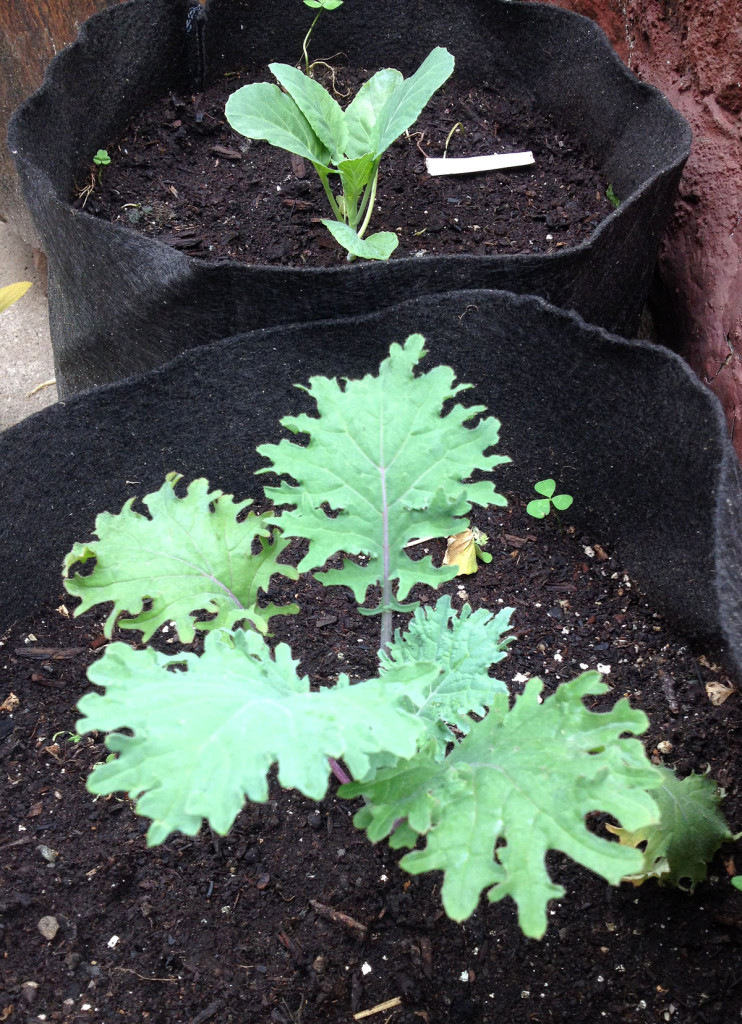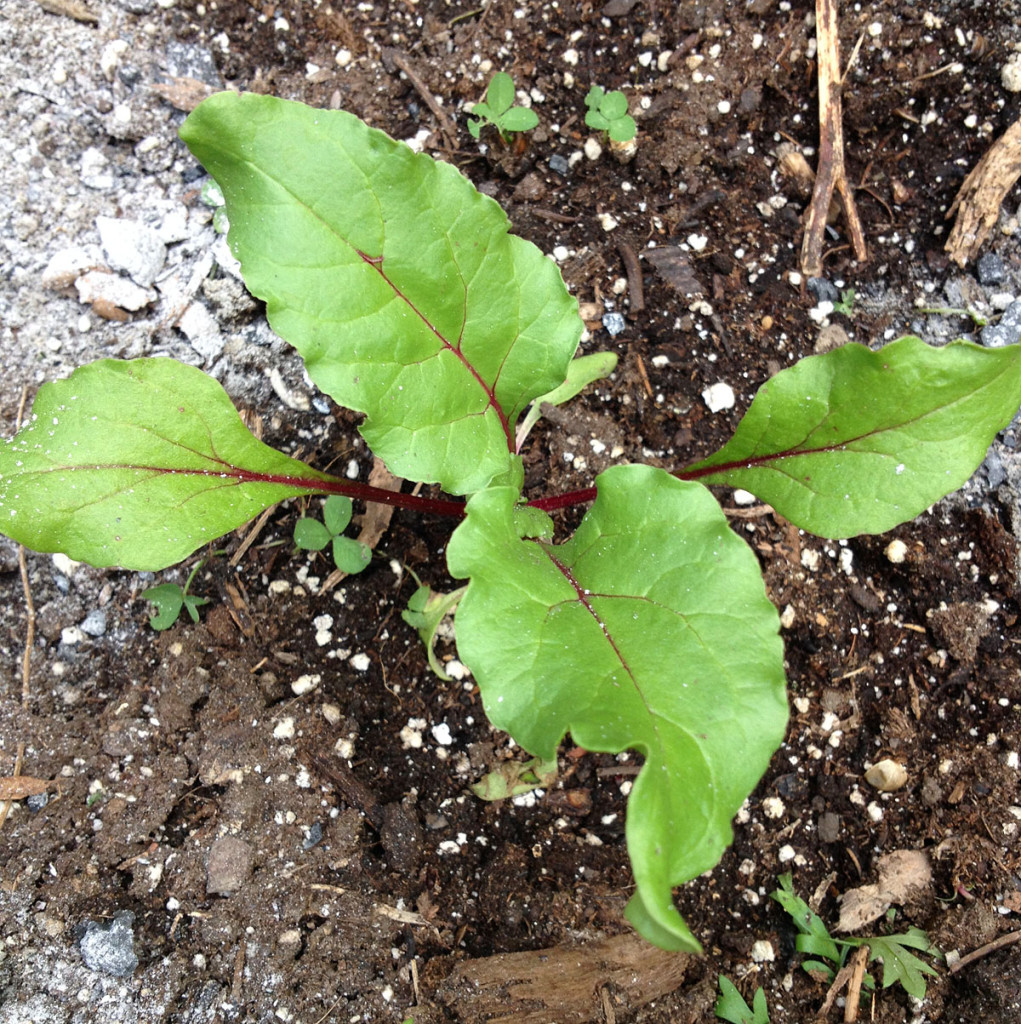
Once we had our transplants and direct-sown seeds in the ground, we could shift our attention from indoors to the garden itself. The bare soil was starting to look a little brighter by the end of May. Here, a beet enjoys its own spot. Note the clover in the background… that’s remnants of the cover crop which have reappeared and would soon spread to all areas of the beds.
An eggplant gets its moment to shine as it is transplanted, mid-May. We use really the bare minimum walking area that we can, essentially just a few boards of cedar and a couple of 1×1-ft slate tiles, so that we don’t compress the soil we’re working by walking on it. It means for some precarious balancing acts at times.
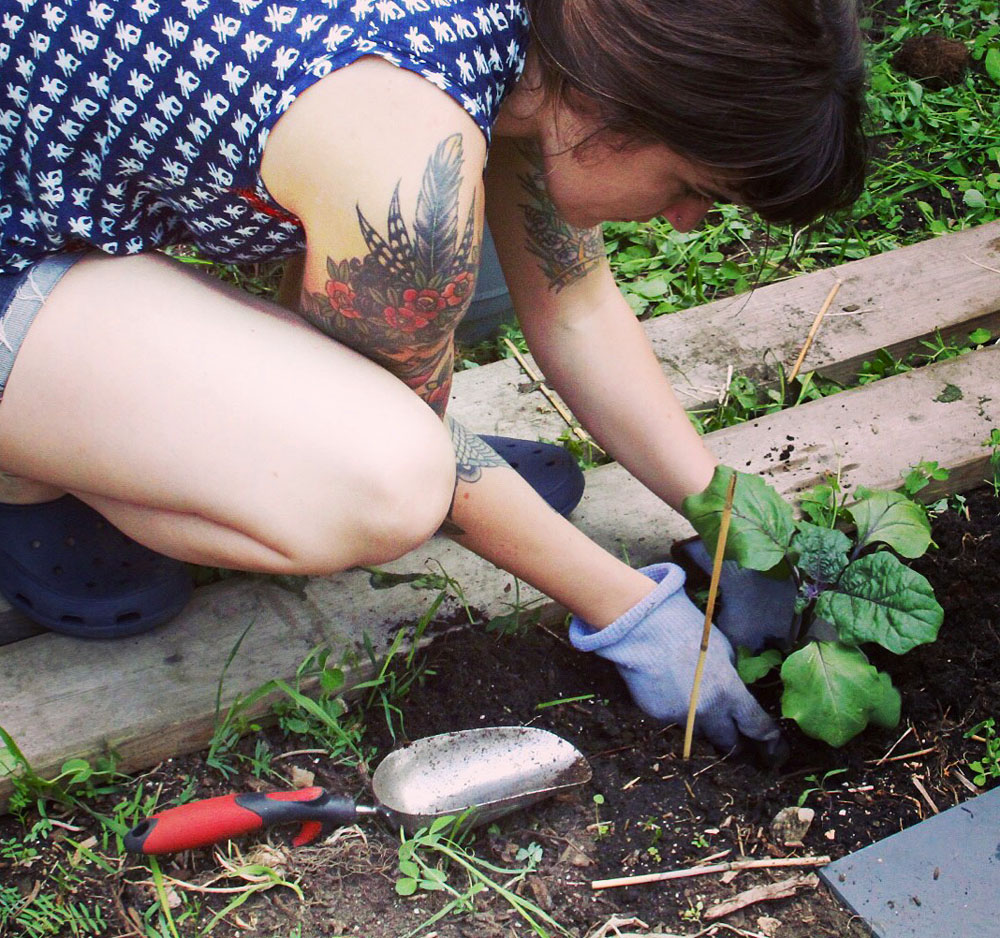
A young and very healthy-looking heirloom tomato gets used to its spot, having a solid seven feet of bamboo to adapt to over the course of the summer. We held back on certain plants such as eggplant until the soil was warm enough and they were physically large enough to be transplanted, later than their peers.
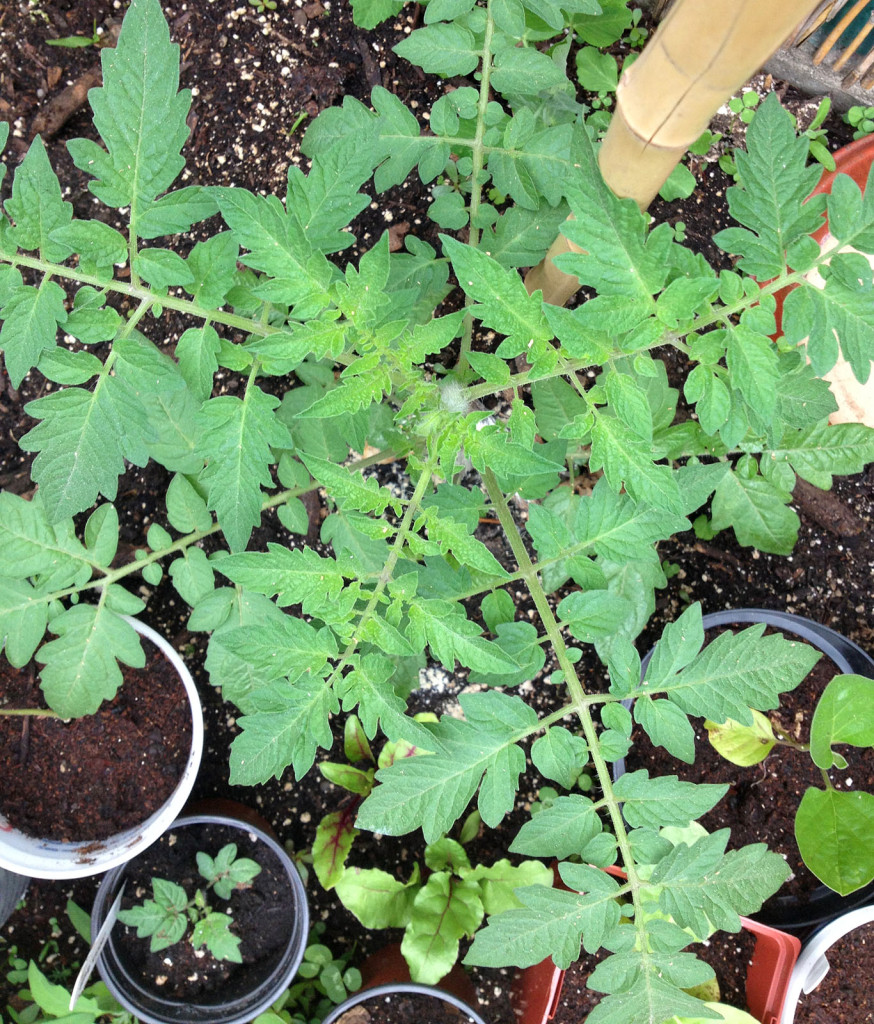
Young Shishito peppers perking up.
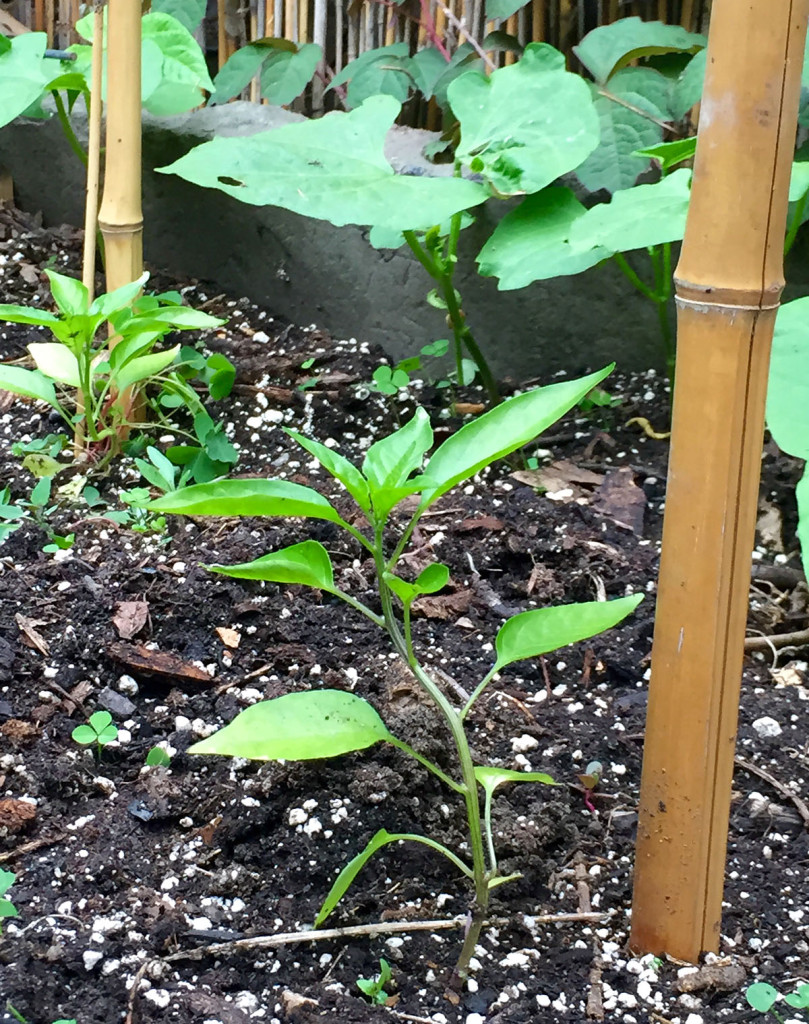
A rogue cucumber or squash plant appears in a spot where we planted nothing. This would become an intruiging mystery down the road.
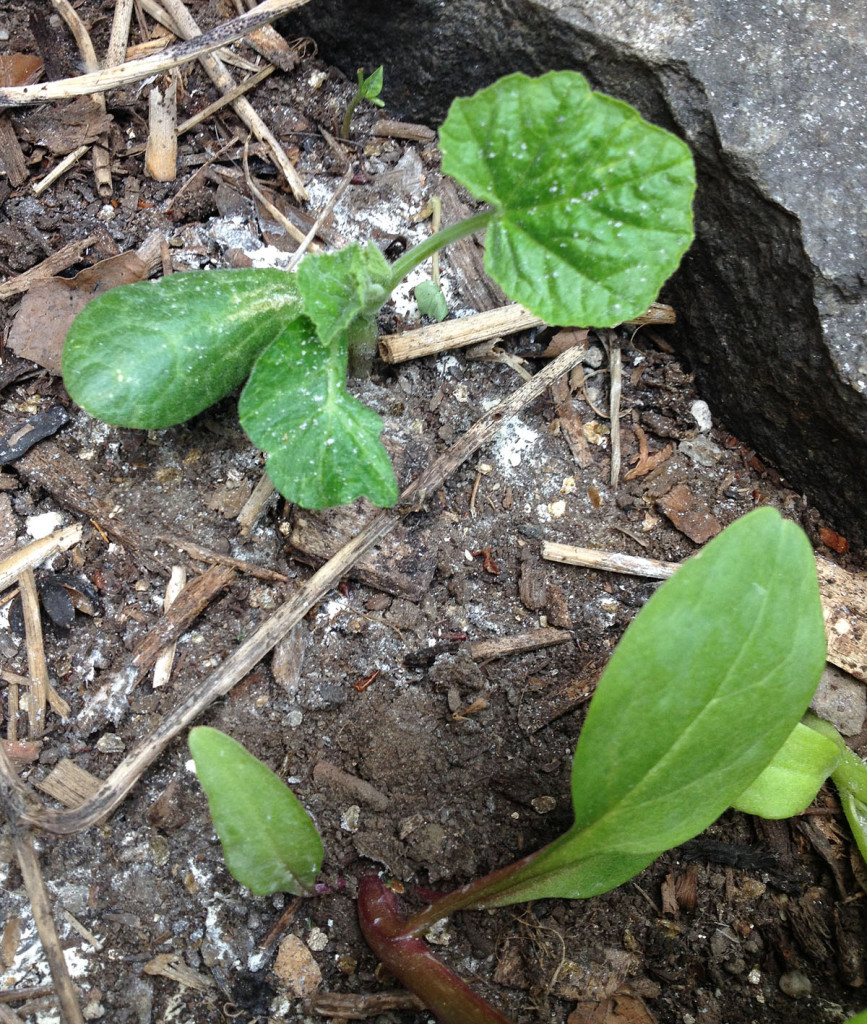
With the air pleasant but still a bit cool, the kale and collards take to their new fabric pots. We kept singles in most, but doubled some pots up with two plants as a comparison. The doubled pots would produce about as much, but with smaller leaves to harvest. Probably singles are the way to go. These are five-gallon pots.
